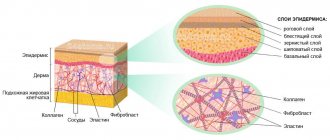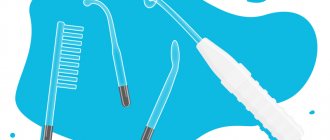The skin is one of the largest human organs. It protects the body from negative environmental influences. Initially, it is the skin that encounters various bacteria, viruses, chemical and physical factors. Unfortunately, often due to a lack of vitamins, the skin can be susceptible to various diseases, including various types of dermatitis. In this case, not only the appearance is violated, but also the protection of all internal organs. In the online store, vitamin preparations are sold in a large assortment.
Women's vitamins
All vitamins are needed for the body, but biochemical processes occur differently in women and men. Therefore, the need for biologically active substances is different. The following types are considered women's vitamins:
- tocopherol (E) – is necessary for the maturation of the egg and the ovulation process; if it is deficient, problems with pregnancy occur; it has antioxidant properties;
- retinol (A) – is part of an antioxidant complex that protects cells from damage, prevents premature aging, improves the condition of skin and hair, and improves vision;
- ascorbic acid (C) - the second vitamin from the group of antioxidants, in addition to influencing the condition of cells and the walls of blood vessels, supports the immune system, is very necessary in the second phase of the cycle and during menstruation;
- calciferol (D) – represented by cholecalciferol, which is synthesized in the skin, and ergocalciferol, obtained from food, primarily for the prevention of osteoprosis;
- folic acid (B9) - necessary in the second half of the menstrual cycle, if conception has occurred, during the first 12 weeks of pregnancy.
No less important are the other vitamins B, K, and PP, but their deficiency in women who eat a balanced diet is rarely observed.
VITAMIN C FOR FIRM SKIN AND GLOWING COLOR
Vitamin C plays an important role in collagen synthesis, maintaining skin elasticity and hydration, and also protects it from adverse environmental factors - free radicals and solar radiation. After 40 years, the amount of collagen in the skin decreases, which directly affects the firmness and elasticity of the skin. Vitamin C helps reduce the negative impact of the external environment on the skin, and also activates the synthesis of collagen and elastin, significantly reducing the signs of skin aging. Clinically proven: topical application of vitamin C stimulates the restoration of skin cells damaged by UV exposure and reduces the number of wrinkles by stimulating the formation of new collagen [2].
Regular vitamin C in cosmetics is quickly destroyed; literally a couple of months spent on the shelf of a cosmetic store reduces the concentration of the vitamin by almost half. Dermatology Vitamin C Intensive Anti-Aging Serum formula contains vitamin C in a bioavailable lipid form. Penetrating into the skin, it releases pure vitamin C, which is actively involved in physiological processes: stimulates the formation of collagen and elastin, improves microcirculation. The formula is supplemented with hyaluronic acid, which restores and maintains the necessary level of moisture in the skin throughout the day. Licorice root extract in the serum whitens the skin, and betaine softens and smoothes it. Apply the serum at night 1-2 hours before bedtime. Use as a stand-alone anti-aging product or in combination with LIBREDERM Collagen night cream. Every morning, the skin is smoother and more elastic, wrinkles are smoothed out.
Why do you need vitamin D?
Researchers believe that a person living in the city has a deficiency of vitamin D. This explains the decrease in immunity and the development of many diseases. Calciferol has long been called a regulator of mineral metabolism, which improves the absorption of calcium and its delivery to cells. In women after menopause, hypovitaminosis D becomes one of the factors that accelerates the decrease in bone mineral density and the development of osteoporosis.
But for many years doctors have attributed other beneficial properties to this substance:
- participates in immune reactions - receptors for calciferol are found on T and B lymphocytes, which are the main protective cells of the body;
- helps maintain pregnancy - by regulating the immune response, suppresses the production of antibodies from the mother's body to the embryo, which is 50% foreign DNA;
- has an anti-inflammatory effect - helps women with genital endometriosis reduce the activity of the inflammatory process;
- protects the skin from premature aging and cancer - accelerates the restoration of epithelial DNA damaged by ultraviolet radiation and does not allow altered tumor cells to multiply;
- reduces the risk of developing bowel cancer, especially in old age.
By improving the condition of the skin in adulthood, with the help of vitamin D, you can prevent baldness, the appearance of deep wrinkles and the development of basal cell carcinoma - a tumor of the surface layer of the epithelium.
Vitamin dosages for adults
For women, the dosage of vitamin preparations changes with age, and there is an increased need for biological substances during pregnancy. To maintain health, the body needs at least 600 IU of calciferol per day, 800 IU for older women.
But studies show that the majority have hypovitaminosis, which is associated with a lack of sunlight, poor diet and increased vitamin consumption. Therefore, doctors recommend taking additional vitamin preparations in a dosage of at least 1000 IU. A safe daily dose can be 4000 IU.
The remaining components are used in the following quantities:
- tocopherol – 15 mg;
- retinol – 900-1000 mcg;
- ascorbic acid – 70-90 mg;
- folic acid – 200-400 mg;
- B12 – 3 mcg.
What is a dietary supplement
A dietary supplement is a biologically active food additive. A dietary supplement is not a medicine!
Accordingly, there are no standards for the production of dietary supplements.
Their quality control consists only of assessing their safety as food products. Unfortunately, in our country there is no system and regulatory framework for control in the field of dietary supplements. It is worth noting that all classifications are conditional. Dietary supplements are a fairly large group of substances, which includes vitamins, minerals, amino acids, essential fatty acids, and probiotics. Vitamins
are organic compounds. The body cannot synthesize them on its own, so they must come from food.
Minerals
- chemical elements that are contained in soil and water, from where they are extracted by the root system of plants. (A balanced diet covers the body’s daily needs for vitamins and minerals).
Amino acids
- a constituent element of protein. The body needs 20 amino acids for protein synthesis. Of these, eight amino acids are essential, meaning they are not produced in the body.
Essential fatty acids
- These are complex compounds of glycerol and fatty acids. The most famous of which are: omega 3 and omega 6. These fatty acids are not synthesized in the body and are found mainly in flaxseed oil and fatty fish.
Probiotics
- preparations that contain bacteria beneficial to the intestinal microflora. Contained in pickled vegetables, yogurt, kefir, some cheeses, and kombucha.
What vitamins are needed at 30 years old?
At a young age, the need for vitamin substances differs from the period of maturity. The female body is actively functioning, eggs mature in the ovaries, and ovulation occurs. Even if you don’t want to get pregnant at thirty, you need products that will maintain a normal menstrual cycle.
The benefits come from the antioxidant complex, which includes A, E, C. Folic acid and B12 are required, they are involved in hematopoiesis and help restore hemoglobin levels along with iron medications. Those who suffer from heavy menstruation should take these drugs in a prophylactic dose before each menstruation.
A good vitamin complex helps strengthen nails and improves the condition of hair and skin. If it contains a sufficient dose of folic acid, it can be used when planning pregnancy.
Healthy Supplements at 40
The gradual decline of ovarian function can appear as early as 40 years of age. The condition of the skin noticeably deteriorates, it loses elasticity, and the hair turns grey. You can effectively maintain health during this period with the help of vitamin supplements combined into complexes for mature women. They must include the following components:
- B6 – to maintain the functioning of the nervous system, normalize sleep and reduce PMS symptoms;
- E – to slow down aging, improve skin condition;
- D- for the prevention of endometrial hyperplasia, cancer;
- A – to strengthen blood vessels, vision, for the prevention of gynecological pathologies;
- K – to normalize blood clotting, prevent uterine bleeding.
After forty years, due to a decrease in ovarian function, the body begins to decline. A good multivitamin will not stop this process, but will help support the body.
Symptoms of vitamin deficiencies
Manifestations of vitamin deficiency (hypovitaminosis) depend on which particular vitamin is missing.
A
deficiency manifests itself primarily in the form of ophthalmological and dermatological pathologies. “Twilight vision” – the ability to confidently navigate in the absence of insufficient lighting – is impaired. Bright daylight is poorly perceived. The conjunctiva is affected (conjunctivitis develops) and the cornea (it softens, perforation becomes possible). The skin becomes dry and vulnerable to infection (typical manifestations are pyoderma and furunculosis). A lack of vitamin A also increases the likelihood of developing respiratory diseases (rhinitis, bronchitis).
Vitamin B1 (thiamine) deficiency
manifests itself in the form of a complex of symptoms called
beriberi disease
. The most typical neurological disorders are: headache, fatigue, intolerance to mental stress, general weakness, uncertainty when walking, sensations of numbness and tingling. Pain in the heart area, tachycardia, nausea, constipation and some other manifestations are also possible.
B2
deficiency is manifested by damage to the lips (lips crack, pockets appear in the corners of the mouth), and the oral mucosa (stomatitis develops). Dry skin is also observed; Possible weight loss and anemia.
Vitamin
B6
has skin and neurological manifestations. The most typical symptoms are dry skin, seborrheic dermatosis (scalp, face, neck), redness of the tongue, cracks in the corners of the mouth, numbness and tingling sensations (hands and feet), anemia, and seizures are possible in young children.
Vitamin
B12
is one of the common causes of anemia, which most often results in symptoms such as general weakness, pale skin, shortness of breath, tachycardia, tinnitus, and dizziness.
Vitamin
C
(ascorbic acid) deficiency is historically known as
scurvy
. Characteristic symptoms: redness, swelling and bleeding of the gums (in severe cases, teeth may fall out), muscle weakness, painful legs when walking, bruising may appear on the skin.
D
deficiency can cause rickets and osteoporosis, as it leads to changes in bone tissue. Children may experience bone deformation; adults (especially older people) often suffer from fractures. Other manifestations: weakness, increased fatigue, muscle cramps in the arms and legs, insomnia, weight loss and loss of appetite.
Vitamin E deficiency
causes hemolysis (decomposition of red blood cells), leading to reproductive dysfunction. Main manifestations: muscular dystrophy, impaired coordination of movements, blurred vision. The skin loses elasticity, hair becomes dull and begins to break.
K
deficiency leads to impaired blood clotting and increased bleeding (nasal, subcutaneous and gastrointestinal hemorrhages are possible).
For women over 50 years old
Menopause occurs on average at fifty years of age, but this does not mean old age. Pronounced senile changes appear only after 70 years. To help the body, you need to exercise, eat right and drink vitamin tablets, and if the symptoms of menopause are severe, take hormonal medications.
One of the most necessary medications for women of this age is calciferol. To choose which vitamin D is best for an adult woman to buy, you need to read the composition. It must include calcium in a dosage of about 1500 mg. After menopause, an effective scheme for preventing colon, endometrial and breast cancer includes:
- a diet high in fiber;
- calciferol – 1100 IU;
- calcium 1500 mg.
What to eat for healthy hair
According to Anna Volkova, it is necessary to consume a sufficient amount of protein every day, as well as include vegetables and fruits in the diet. The main rule of a balanced diet is variety. The menu should include a variety of nutritious foods, including meat and poultry, organ meats, grains and cereals.
Equally important are the right oils, herbs, vegetables, berries and fruits. But “empty foods” without a rich nutrient composition should be avoided. Fast food and highly processed products (for example, cereals, sweets, ready-made sauces and soups, products containing margarine) will not bring any benefit to the body.
The most valuable substances for healthy strands are found in affordable, simple, unprocessed foods.
TOP 5 drugs
You can fight hypovitaminosis if you buy the required type of vitamin separately, but it is more convenient to use multivitamins with a balanced composition. Choosing good drugs at the pharmacy is difficult; you need to take many parameters into account. To do this, you can make an appointment with a doctor, read reviews or focus on the TOP 5 drugs for women of different ages.
SOLGAR, Laboratoires INELDEA, Nature's Bounty, FINE JAPAN, INFINITY, UNIMAT - you can select a complex based on age or health status. The manufacturer offers multivitamins for girls leading an active lifestyle and for those preparing for motherhood. You can buy a special drug for women over 45 years old; for older people there are tablets with vitamin D and calcium and many other multivitamin complexes.
- Orthomol is a line of vitamin products for women, which are available in capsules, drinking liquid and granules for preparing a solution. Contains all the necessary substances to maintain health at different ages.
- Vitrum - includes micro- and macroelements in the required dosages. For young girls there are medicines from the Beauty series, and for older girls - Beauty Elit, they contain substances that allow you to strengthen your nails and maintain the beauty of your hair. There are medications for pregnancy planning that contain omega-3 acids.
- Dopelgerts Active menopause - a vitamin complex for women after menopause. The peculiarity is that it contains all the necessary substances for the prevention of heart disease and osteoporosis.
- Duovit is a drug for women that can be taken at any age. The tablets are divided into two types depending on the compatibility of the components.
If you take vitamin supplements comprehensively from the age of 20, you can maintain a high level of health. Prevention from age 50 will prevent the early development of osteoporosis. In adulthood, there are many concomitant diseases that require adjustments in vitamin intake. This was not provided for in the previous generation of drugs, but you can purchase new products that are specially designed for patients with cardiovascular pathologies, diabetes mellitus or joint diseases.










